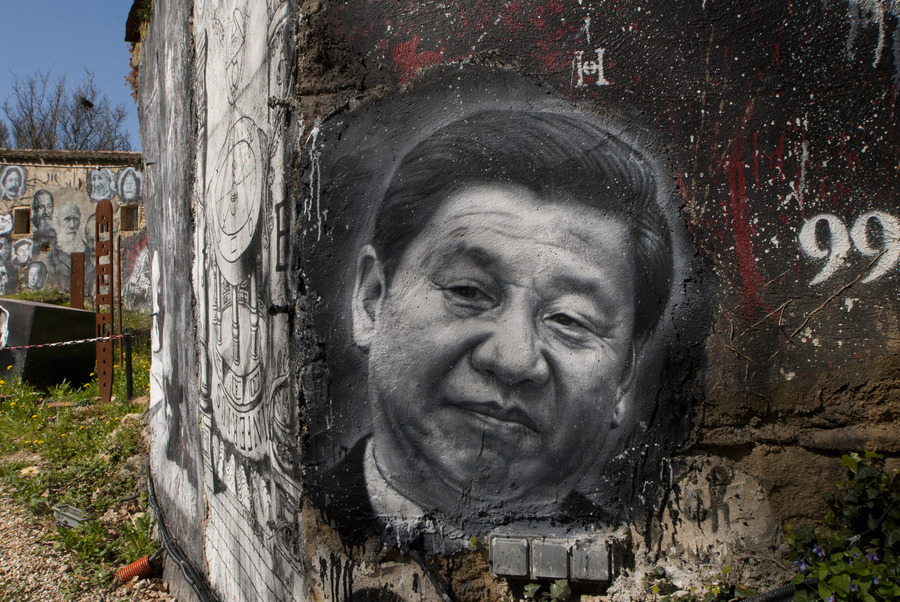Middle East Ticker: Turkish Assassin Kills Russian Ambassador, Trump Taps Pro-Settlement Ambassador, Libyan Smuggling Ring Arrested, Kuwait Jails Political Activists
Russian Ambassador Assassinated in Turkey as Russia Concludes Aleppo Operations
Published by The Lawfare Institute
in Cooperation With

Russian Ambassador Assassinated in Turkey as Russia Concludes Aleppo Operations
Russia’s ambassador to Turkey, Andrei Karlov, was assassinated while delivering remarks at an embassy-sponsored art show in Ankara on Monday. The gunman was identified as Mevlut Mert Altintas, a 22-year-old Turkish citizen who was a member of the riot police force in Ankara. After shooting Karlov, he shouted in Turkish and Arabic while pacing the room with his pistol; in videos of the shooting, he can be heard saying, “We’ve made an oath to Muhammad to die in martyrdom...Don’t forget Aleppo. Don’t forget Syria...You will not taste safety unless our fields are safe.” He was shot and killed at the scene.
The assassination comes at a delicate moment for Turkey-Russia relations. Turkey has been a vociferous opponent of the Assad regime, but has pivoted toward improving ties with Russia over the course of the past year. In recent weeks, that has included trying to mediate negotiations to evacuate besieged civilians from Aleppo, and Russian, Iranian, and Turkish diplomats are scheduled to meet today in Moscow to discuss the Syrian civil war. Russian parliamentarian Leonid Slutsky said those talks would continue as planned. He told reporters that “despite this monstrous tragedy, that will cast gloom not only these talks, something constructive will nonetheless be achieved...Now Moscow and Ankara will have to forcibly move toward a solution.” (The discussions in Moscow are separate from U.N.-backed talks, which will resume in Geneva in February.)
Russia and the Assad regime are currently winding down their operations in Aleppo. Efforts to evacuate the remaining civilians and rebels besieged in the last rebel-held corner of the city resumed yesterday, and the U.N. Security Council voted unanimously (including Russia) to allow monitors access to the city.
While little is known about Altintas at this point, the mayor of Ankara has claimed that he was a member of the Gulenist Movement, the group that Turkey has accused of plotting the July 15 coup attempt. That would fit Ankara’s narrative about fifth columnists, which it has used to justify a crackdown on dissent that has removed more than 100,000 people from public sector jobs and at least 36,000 people are awaiting trial. It would also conveniently downplay the assassin’s apparent motive to avenge atrocities committed in Aleppo, sparing an awkward public debate in Turkey about the government’s increasingly close relationship with Moscow even as the Russian military attacks rebel forces that Turkey has supported.
Belgian Authorities Arrest Arms Smugglers Violating Libya Embargo
Belgian police arrested four people involved in an international network smuggling weapons to Libya in violation of a U.N. weapons embargo. The network includes smuggling and money laundering operations in the United States, United Arab Emirates, Niger, and Belgium, the Associated Press reported. The U.N. Security Council imposed a weapons embargo on LIbya in 2011, but countries (notably Qatar and the United Arab Emirates) and private smugglers have violated the ban on imports to supply factions involved in the country’s ongoing power struggle among rival governments. U.N. Libya envoy Martin Kobler said last year that the country had been inundated with arms. "These weapons do not fall from the sky, but come increasingly through illegal shipments by sea and by land. The arms fuel the conflict. These shipments must end if there is any serious hope of bringing peace to Libya," he said.
Kuwait Comes Down Hard on Freedom of Speech
A court in Kuwait sentenced 16 people to two years in prison for reading a speech previously deemed offensive to the emir. The speech was first given in 2012 by prominent opposition politician Musallam al-Barrack, who cautioned Kuwaiti Emir Sheikh Sabah Al Ahmed Al Sabah not to "drag the country into a dark abyss." Barrack was also given a two years for the speech and will finish serving his sentence in February. Kuwait has an elected parliament and fairly contentious political debate, but the courts still tightly restrict freedom of speech in the country.
Trump’s Pick for Ambassador to Israel Says He’ll Move Embassy
President-elect Donald Trump announced last Thursday that he will nominate David Friedman to be his ambassador to Israel. Friedman is a columnist for the hard-right Israeli newspaper Arutz Sheva and a bankruptcy lawyer who has represented Trump’s businesses. After the announcement, Friedman issued a statement in which he said he will “strengthen the unbreakable bond between our two countries and advance the cause of peace within the region, and look forward to doing this from the U.S. embassy in Israel’s eternal capital, Jerusalem."
Though both Bill Clinton and George W. Bush advocated moving the embassy only to change their minds between election day and inauguration, Trump and Friedman appear intent on following through. As former negotiator Aaron David Miller wrote last week, that would be a mistake: Trump would be giving away U.S. leverage and putting the brakes on any chance of resuming the peace process. And it would be needlessly provocative in a city where even the slightest provocations can escalate to violence.
Friedman has also supported settlement construction and annexation in the West Bank, and has used shockingly offensive language to describe liberal Jewish groups like J Street. The New Yorker’s David Remnick characterizes Friedman’s views, as espoused in his Arutz Sheva columns, as “full reactionary fervor.” Writing from Jerusalem, Lawfare’s own Benjamin Wittes and Paul Rosenzweig report, “Unsurprisingly, the reaction in Israel to the appointment has been sharply divided along ideological lines, with the right-wing nationalists who make up the current government enthusiastic and more moderate figures ranging from reserved to despondent.”




